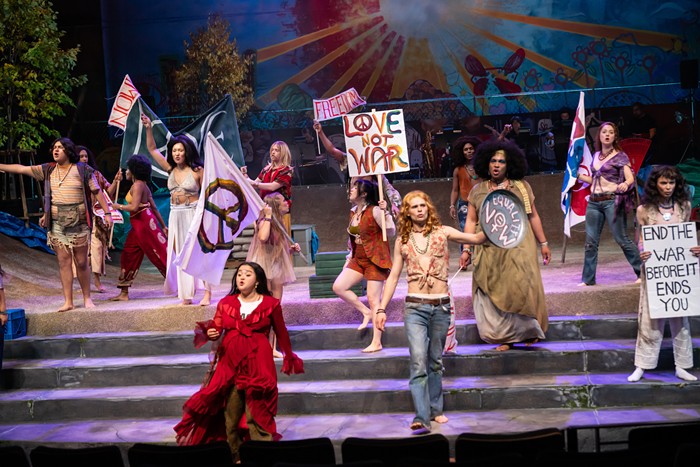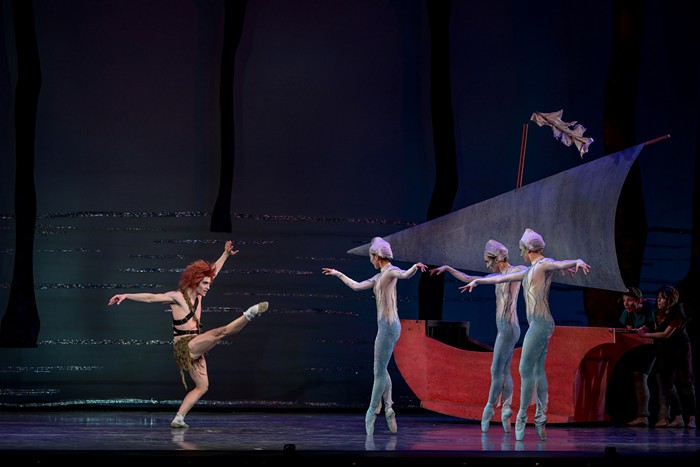For the past several months, Fever Theater has researched cults and their followers, paying particular attention to the way that cult recruitment and brainwashing often invoke the apocalypse, and now Fever has built a show that draws on this recurring motif. Fever will be revisiting the show with an expanded design crew in March, so what we have now, running in a frigid Southeast warehouse space, is the bare-bones version of Believers, subject to refinement between now and spring. And while the production has tremendous promise, refinement is definitely in order.
Believers is loosely divided into three segments. In the first, the ensemble conspires to create the illusion of a crowded, moving train, one on which something horrible is slowly happening (evoking the 1995 sarin gas attack on the Tokyo subway). The scene is claustrophobic and effectively nerve wracking. The second, weakest segment is an overlong and somewhat incoherent parable about a strife-ridden collective who worship Lord Xenu. This entire sequence needs to be rewritten by someone funny. The third portion of the show is the strangest, as well as the part I feel most conflicted about: Fever invokes the apocalypse and asks the audience to participate in imagining what they would do if the world was really ending.
It's a show about cults that ultimately tries its hand at cult-making; not only does Fever ask the audience to suspend their critical faculties long enough to feign participation in the world's end, but the exercise itself is lifted from David Koresh's handbook. I'll play along with a show that requires audience participation, but to baldly employ the same device that cult leaders use to manipulate their followers seems sort of, well, snotty. I have no fundamental objection to being fucked with, but that doesn't seem to be Fever's goal here. This part of the show is characterized by a relentless faux-sincerity that is both wearing (isn't it a little disingenuous to ask your audience to be "real" while you yourself are acting?), and difficult to reconcile with the rest of the play. There's potential here, and some great ideas—this show could be a tidy little masterpiece of audience manipulation, if they dropped the nü-sincerity schtick in favor of a more nuanced approach.


















